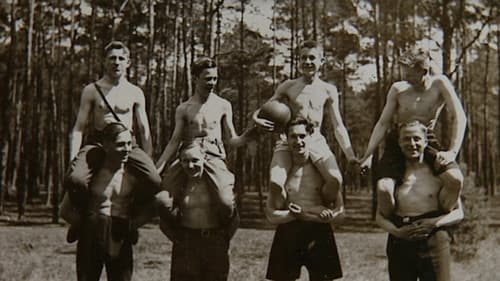
Narrator
'A Guest of life' is inspired by the journey of Alexander Csoma de Koros. The eccentric 19th century set out from his native Transylvania to central Asia on foot, only taking his knowledge of 13 dead and spoken languages with him. He wanted to find the ancestors of the Hungarians, but once reaching Tibet he stayed there, compiling an English-Tibetan dictionary, translating and abridging Buddhist teachings and literature, including the Book of the Dead. The film however is not a biopic, but a collection of impressions of Tibet, recorded on an 8mm camera, overlaid with excerpts from Csoma's diary and translations, spoken on the many languages familiar to Csoma. Intercut with the documentary-style footage are animated segments, which tell Transylvanian folktales that have been weaved around the legendary figure of Csoma.

Music
'A Guest of life' is inspired by the journey of Alexander Csoma de Koros. The eccentric 19th century set out from his native Transylvania to central Asia on foot, only taking his knowledge of 13 dead and spoken languages with him. He wanted to find the ancestors of the Hungarians, but once reaching Tibet he stayed there, compiling an English-Tibetan dictionary, translating and abridging Buddhist teachings and literature, including the Book of the Dead. The film however is not a biopic, but a collection of impressions of Tibet, recorded on an 8mm camera, overlaid with excerpts from Csoma's diary and translations, spoken on the many languages familiar to Csoma. Intercut with the documentary-style footage are animated segments, which tell Transylvanian folktales that have been weaved around the legendary figure of Csoma.

Director
'A Guest of life' is inspired by the journey of Alexander Csoma de Koros. The eccentric 19th century set out from his native Transylvania to central Asia on foot, only taking his knowledge of 13 dead and spoken languages with him. He wanted to find the ancestors of the Hungarians, but once reaching Tibet he stayed there, compiling an English-Tibetan dictionary, translating and abridging Buddhist teachings and literature, including the Book of the Dead. The film however is not a biopic, but a collection of impressions of Tibet, recorded on an 8mm camera, overlaid with excerpts from Csoma's diary and translations, spoken on the many languages familiar to Csoma. Intercut with the documentary-style footage are animated segments, which tell Transylvanian folktales that have been weaved around the legendary figure of Csoma.

Narrátor

Music
En los años 20, Berlín se había convertido en un paraíso homosexual, donde gays y lesbianas vivían relativamente al descubierto dentro de una subcultura de artistas e intelectuales. Con la llegada al poder de los Nazis, todo cambió. Entre 1933 y 1945 100.000 hombres fueron arrestados por ser homosexuales, bajo el cargo de sodomía, según el artículo 175 del Código Penal alemán de 1871. En 1997 los directores Robert Epstein y Jeffrey Friedman fueron a Amsterdam para la presentación de su película "El Celuloide Oculto". Allí conocieron al Doctor Klaus Müller, un historiador Alemán y Director del Proyecto Europeo del Museo Memorial del holocausto de los Estados Unidos, y se propusieron sacar esta historia oculta a la atención internacional. Narrada por Rupert Everett.

Music
A cinematographic reflection on external and internal images based on a journey to Siberia: looking, listening and marvelling.

Music
Eckermann (Laszlo Kistamas) is a listless computer whiz who spends most of his time lounging in a bathtub holding imaginary conversations with cartoon characters usually more popular with children than grownups. He has some friends who want to use his skills to steal some money from a local gambling joint. He works out a scheme for his friends and returns to his tub. At some point along the way, he is joined in the water by a lovely Czech refugee, who (perhaps inadvertently) makes it possible for him to die there.

Music
Main character of AZ ÖRVÉNY is cameraman György Petö. His private films shot before and during World War II document his family, and particularly his girlfriend and later wife Eva Lengyel. With hindsight, these films, mainly recorded in the southern Hungarian city of Szeged, make up an extremely wry historical document. Petö was a Jew. Slowly but gradually we notice how the anti-Jewish laws and political revolutions in Hungary take the family in a stranglehold. AZ ÖRVÉNY is a rhapsody of found footage. Skillfully edited and complemented with additional footage, it produces an account of an atrocious era and a plea for human dignity.






